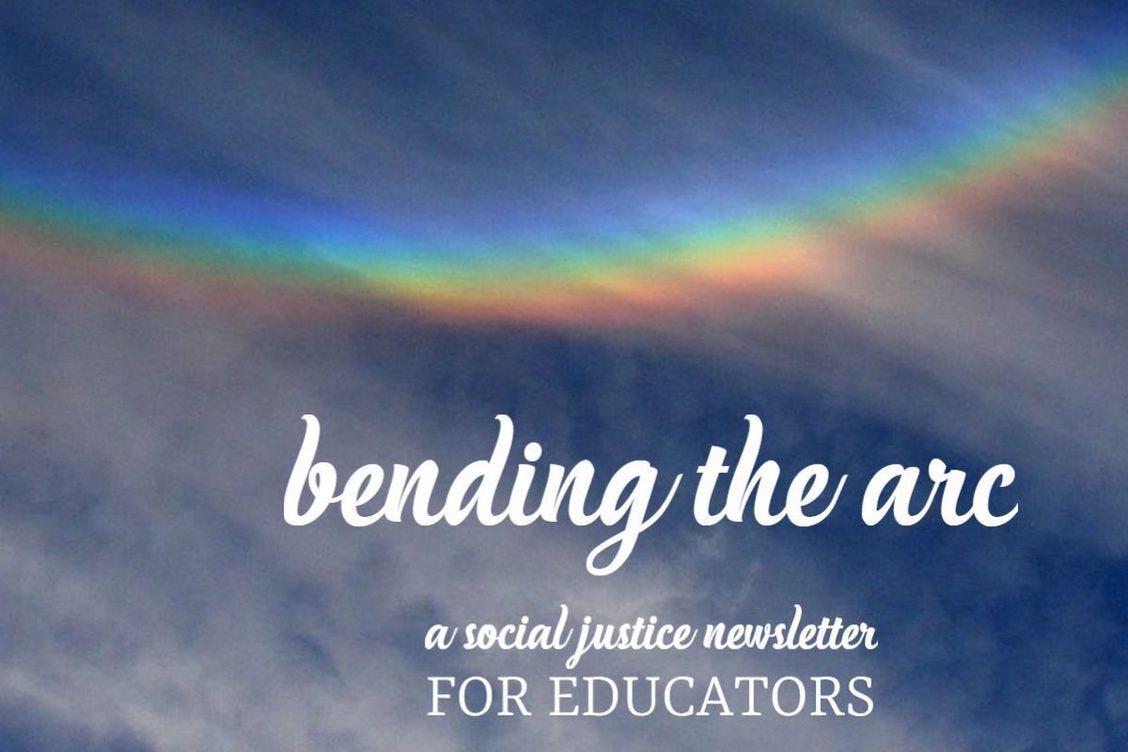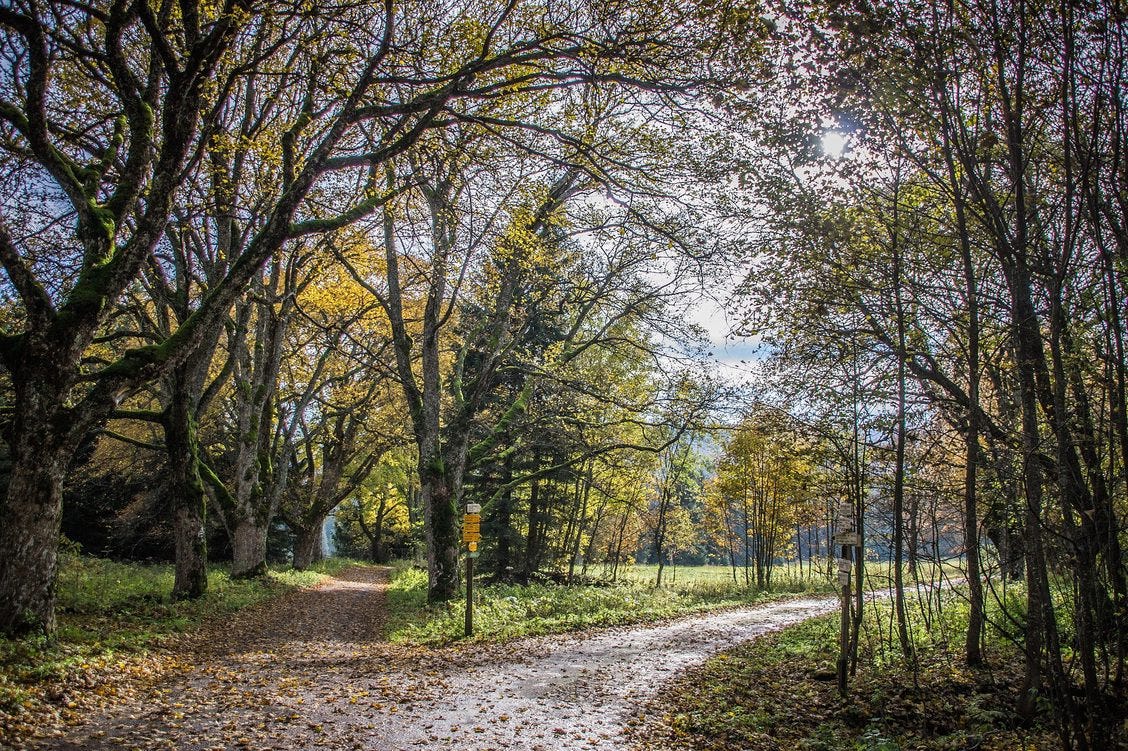“If I were a surgeon I would cut first: our blinders, and the disdain for complexity that our narrow vision instills. Even now there are those who look to technology as if we might make something (in isolation) that will fix this (without unintended effects).” - Emily Johnston, Her Animals (2015)
Noticing
Friends, I’m noticing a trend. As the first of each month rolls around, I encounter a phase of being stuck. It feels a bit like writer’s block but that’s not exactly it. I have words. The difficulty lies in deciding where to begin. Have you watched/heard/seen the news lately? Disasters large and small are part of the everyday experience. On the one hand, I have our many students in mind: their bright, easy smiles and room-filling chatter. On the other hand, there’s the world as it is: democracy-shrinking, climate-disaster-point-of-no-return-arriving, interpersonal and international violence-reinforcing, inequality-exacerbating, and future-generations-damning. It may sound like hyperbole but evidence abounds that it is not. That’s part of why, month for month, it feels harder to begin to write. To push back, or at least to push on towards better than right now.
Meanwhile, our students continue to show up for class, practices and rehearsals. They gather with their friends, trade messages across multiple devices and platforms. Plenty of them listen to their parents, take care of siblings or other loved ones, volunteer for causes that matter. When I talk with older students I hear some of their longing for safety, stability, and rest. They are humans trying to make sense of a world that seems less and less inclined to see them as anything but market widgets, data repositories and labor banks. I feel for and with them. Sometimes, the best I can offer is a listening ear.
Under these circumstances we need to consider very carefully our roles as educators, adults, parents, coaches, elders, aunts, and uncles. How do we stand with our young people? How do we provide the support, care and accountability that our youth require? They face and will continue to face so many social, economic and political ills that are not of their making. How do we, as adults, own up to our complicity and work alongside our young people to beat back the worst developments that have occurred on our watch? These are the questions I wrestle with every time I sit down to consider this newsletter. Doing better suggests moving beyond doing nothing.
Abundance to share
This month I offer you a range of resources and ideas that have recently crossed my path. I don’t have a specific theme or even a clear rhyme or reason to this selection of materials, only the desire to present options that you will perhaps deem worthy of your time and attention.
During a Learning For Justice webinar on countering hate, I was introduced to a documentary film platform, RetroReport which offers a remarkable library of films on numerous topics in History, Politics, Social Justice, the environment and Science geared specifically for use in classrooms. Absolutely check them out!
As a result of outbreak of war in Sudan a new wave of refugees are facing tremendous hardships trying to exit the country. If you are looking for ways to help, Eyes On Sudan offers suggestions on where and how to donate. The site also has substantive articles on the background on the Sudanese people’s struggle for democratic, non-military rule.
Educator blogs are still a thing and May marks the annual #31DayIBPOC series where Indigenous, Black and People of Color educators share a blog a day documenting experiences, reflections, dreams and visions. I just read Tricia Ebarvia’s opening post on May 1st where she reflects on becoming a plant person and what she’s learning in the process:
“…each plant I bring home or into my office teaches me something new. And mostly what they’re teaching me is that they’re not too different from people: each plant needs a little something different.”
In April, Dr. Sawsan Jaber hosted and curated 30 Days of Arab Voices which includes a rich collection of prose and poetry for your consideration. I’m only now sampling pieces but everything I’ve read so far has touched me in one way or another.
Native Ways of Knowing Booklist provides an excellent selection of titles for all ages and stages by Indigenous authors. “Adding these books to your classroom will help teach young readers empathy, courage, resilience, sovereignty, and Native Ways of Knowing. These suggested Indigenous authors and illustrators utilize Indigenous storytelling and convey the breadth of Native cultures and sovereignty.” - From the Booklist announcement. Shout out to Debbie Reese who put this resource in my path.
I’m going to stop there because you (and I) did not suddenly gain a full ride scholarship to Read and Rest University for the next month, semester or year. (Or did you?) When I began drafting I have to admit that I was in a darker place. I was processing horrible news regarding a public murder that really had me questioning what all this *gestures widely* is good for. Rather than delve into my personal response here, I refer you to someone who has articulated their thinking on the topic far more coherently than I ever could.
I will tell you, however, that every day I fear for the future of humanity AND every day students show me all kinds of reasons to keep running towards it with gusto and purpose. That’s the tradeoff: Knowing and also believing.
Hoping your spring season is full of promise,
Sherri
PS: The book quoted at the top, Her Animals by Emily Johnston is extraordinary and beautiful. She includes reflections on our deteriorating capacity/willingness to address climate emergency and examines what may be at the root of that conflict. Check for it at your local library. You’ll thank me.




How wonderful to get your newsletter first thing upon awakening this morning. I have been unable to access my account on Twitter and I haven’t had the time to look up everybody I want to check in with. We are so lucky to work with young people who give us a reason to keep going. Much love and sustenance to you.